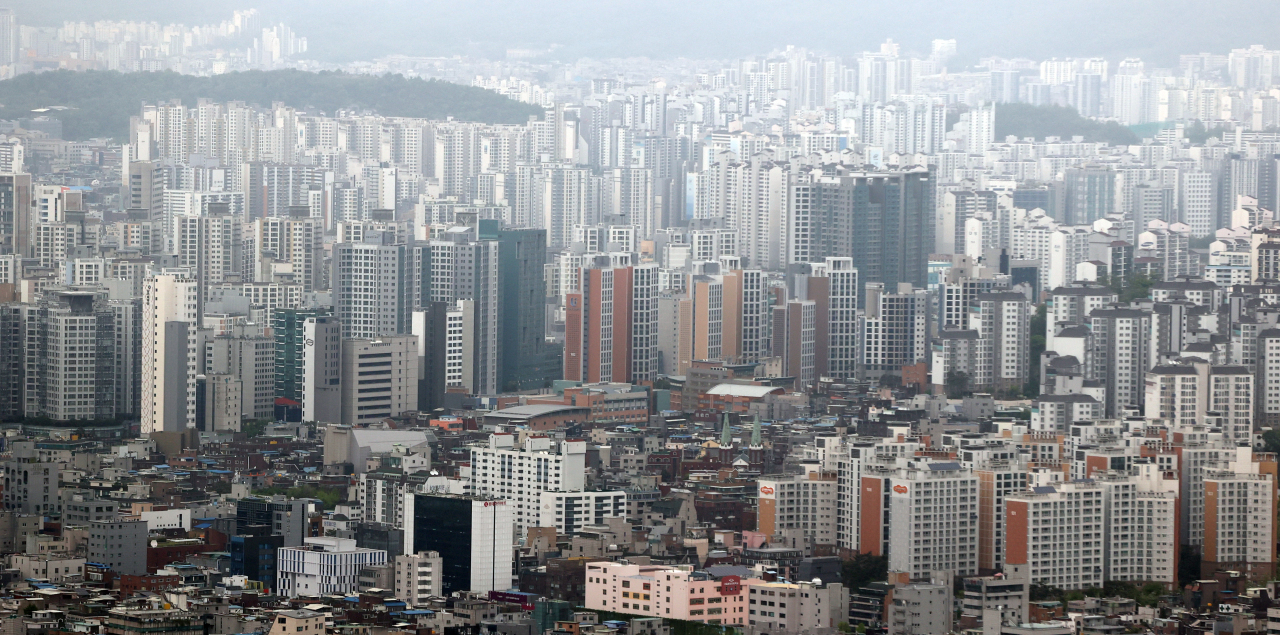Concerns over real estate speculation rise in S. Korea
By Kim Young-wonPublished : June 6, 2021 - 16:18

In recent years South Korea has seen a surge in real estate investment deals that were thought to be speculative, but some market watchers say the country still lacks effective measures to prevent property speculation and the resulting price hikes.
Data compiled by the Ministry of Land, Infrastructure and Transport showed that foreign individuals owned 21.35 million square meters of land in the nation in 2020, up 78 percent from 11.99 million square meters in 2016.
Separate data from real estate research firm 10,000-lab showed that the number of real estate transactions by foreigners, both for commercial and residential properties, hit a new high of 5,280 in the first three months this year, up 6 percent from the same period last year.
Of 21,048 property transactions made by foreigners last year, nearly 80 percent took place in Seoul and surrounding cities, where home prices have jumped significantly since President Moon Jae-in took office in May 2017.
In Seoul alone, Gangnam was the most popular district with 395 transactions, followed by Guro-gu, Seocho-gu and Yeongdeungpo-gu, each of which saw more than 300 real estate properties change hands.
Of 23,167 apartments purchased by foreigners from January 2017 to May 2020, 7,569 units, or 32.7 percent, were not occupied by the owners, a sign of speculative investment, according to market watchers.
Some real estate transactions also involved illegal money laundering using cryptocurrency, or tax evasion. For around the past three years, 61 foreigners illegally purchased 16 apartments worth 17.6 billion won ($15.8 million) without paying due taxes.
Since last year, lawmakers have sought legislation to prevent foreign investors from speculating in the local real estate market, but most of the proposed bills are pending in the National Assembly.
Rep. Chung Il-yong last year submitted a bill that would levy heavier acquisition taxes of 20 percent on foreigners who do not live in their apartments for six months after a purchase in the absence of a good reason.
“Korea lacks regulations on speculative real estate investment compared to other nations, including Singapore and Australia, all of which had experienced price hikes due to the influx of foreign investors,” an official from the real estate industry said.
Singapore levies an additional acquisition tax of 20 percent on foreign purchasers while Hong Kong has adopted a 30 percent acquisition tax rate on people with foreign nationality, compared with 4.75 percent for Hong Kong nationals.
Australia charges additional fees to foreigners who do not live in the residences for at least six months.
In a report released last month, the state-run Korea Research Institute for Human Settlements called for strengthened tax and finance standards for property purchases by foreign investors.
In December last year 12 lawmakers, including Rep. Hong Seok-joon, jointly proposed a bill that takes a reciprocal approach to foreign investment in real estate, applying regulations that are as strict as those in the investors’ home countries.
“While Korean citizens are not allowed to own land in some nations, such as China, foreigners can freely trade properties here,” said the lawmakers in a statement, adding that unfettered property acquisitions by foreigners could become a serious problem for the nation.
By Kim Young-won (wone0102@heralcorp.com)


















![[Today’s K-pop] Treasure to publish magazine for debut anniversary](http://res.heraldm.com/phpwas/restmb_idxmake.php?idx=642&simg=/content/image/2024/07/26/20240726050551_0.jpg&u=)